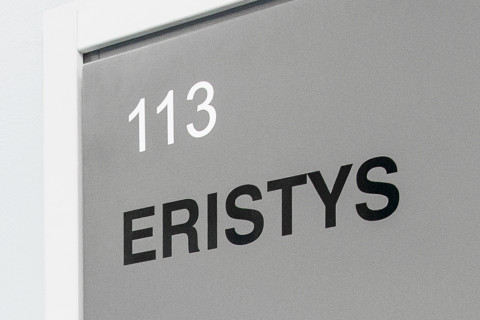The doctoral dissertation by MNSc Emilia Laukkanen showed that coercive measures are used frequently in psychiatric care, and nursing managers’ attitudes are associated with their use. Seclusion was the most used coercive measure. Coercive measures were used less frequently on wards where nursing managers held more negative attitudes towards the most restrictive coercive measures.
In Finland, the prevalence of psychotic disorders is relatively high, about 3.5 percent, and about one percent of the Finnish population is diagnosed with schizophrenia. In addition, inpatient care related to psychotic disorders is quite common. Aggressive behaviour is sometimes related to severe mental disorders. To ensure the safety of the patient and others, coercive measures might be needed to limit the patient’s self-determination during psychiatric care. The reduction of coercive measures has been a national and international goal for several years, and strategies aiming at their reduction typically highlight the significance of leadership and management. However, the relationship between leadership and management, and the use of coercive measures, has not been studied previously. In addition, research related to the attitudes of nursing managers has been scarce.
For the first time, the data concerning the use of coercive measures were collected directly from psychiatric wards
In Finland, the use of coercive measures has been monitored for a long time, and the National Institute for Health and Welfare publishes yearly national statistics related to their use. These figures are based on the Care Register for Health care. In this study, the data concerning the use of coercive measures were, however, collected directly from wards and merged into one, which has not been done previously.
This study investigated the number and duration of coercive measures applied in Finnish psychiatric inpatient care during a period of one year. The study was based on register data concerning the use of coercive measures during the year 2017, collected from all psychiatric specialized care wards and government psychiatric hospital wards.
In addition, psychiatric nursing managers’ attitudes towards containment methods were investigated, alongside the associations between attitudes and the use of coercive measures. The attitudes of directors of nursing, head nurses, and assistant head nurses were surveyed with an international questionnaire. Additionally, the attitudes of nursing staff towards the use of containment methods were examined based on previous research. In this study, coercive measures refer to seclusion, mechanical restraint, physical restraint, and involuntary medication.
Attitudes are reflected in practice
This doctoral dissertation showed that nursing staff’s attitudes towards coercive methods are more negative than previously, but they are still often considered as necessary. A total of 140 psychiatric wards reported having used some coercive measure during 2017. Altogether, seclusion was applied 4006 times, mechanical restraint 2113 times, physical restraint 1064 times, and involuntary medication 2187 times. – Within the national statistics based on the Care Register, the number of coercive measures remained considerably lower than in this data collected directly from the wards, says Laukkanen.
The attitudes of nursing managers were mainly more negative than the attitudes of nursing staff, but some differences occurred in the attitudes of managers. The study found an association between managers’ attitudes and the use of seclusion, mechanical restraint, and physical restraint. A more positive attitude towards seclusion and other heavier measures were associated with heavier use of coercive measures. A more positive attitude towards lighter measures, such as intermittent observation, was associated with lesser use of coercive measures.
This doctoral dissertation yielded novel information concerning the use of coercive measures and attitudes related to their use. The information can be utilized in the reduction of these measures. – Both nursing staff’s and nursing managers’ attitudes should be considered because they are associated with the use of coercive measures. In the future, the use of these measures should be examined at ward level to gain accurate information, says Laukkanen.
The doctoral dissertation of Emilia Laukkanen, entitled Coercive measures in Finnish psychiatric inpatient care – special emphasis on psychiatric nursing managers’ attitudes, will be examined at the University of Eastern Finland, at the Faculty of Health Sciences. The opponent in the public examination will be Adjunct Professor Raija Kontio from the University of Turku and the custos will be Professor Katri Vehviläinen-Julkunen from the University of Eastern Finland. The public examination will be held in Finnish online on 29 January 2021, starting at 12 noon.

